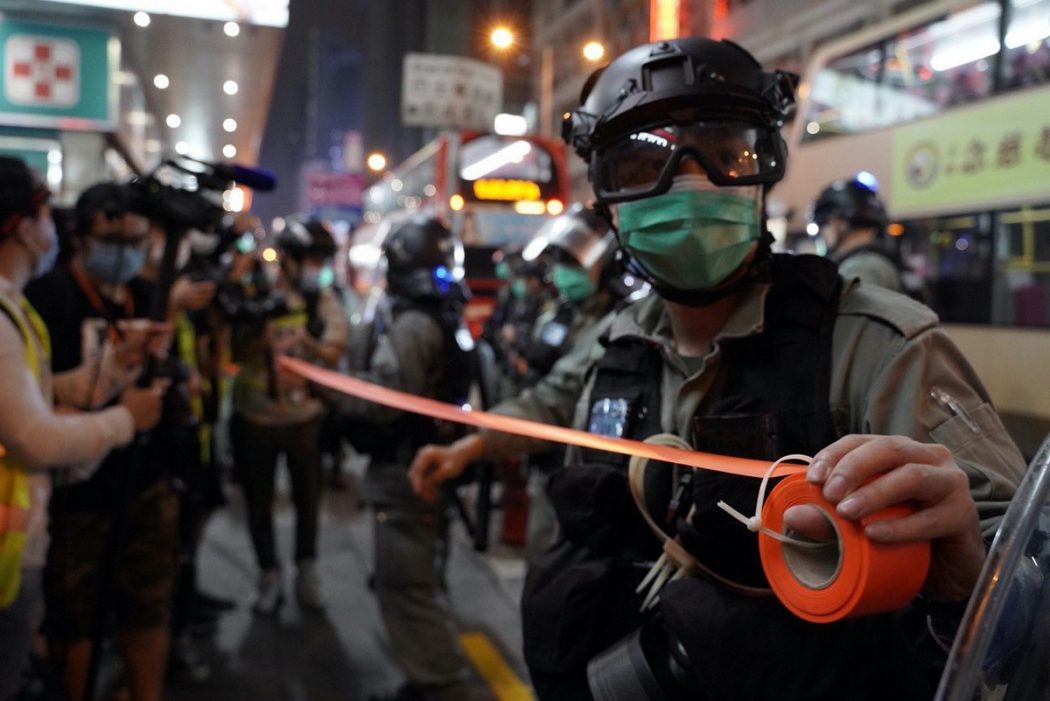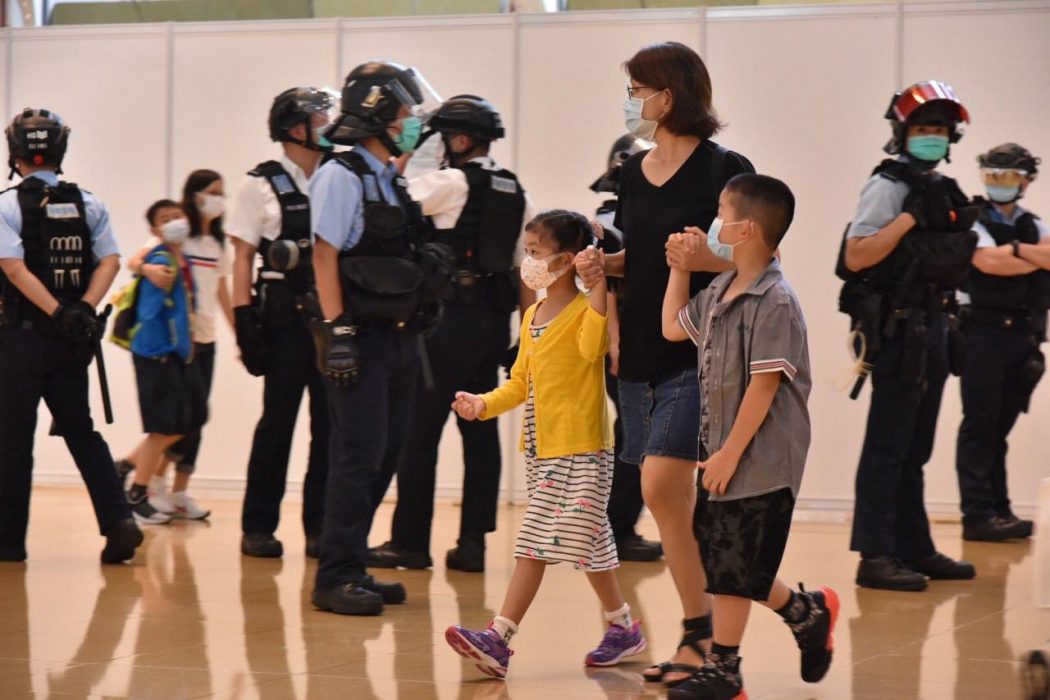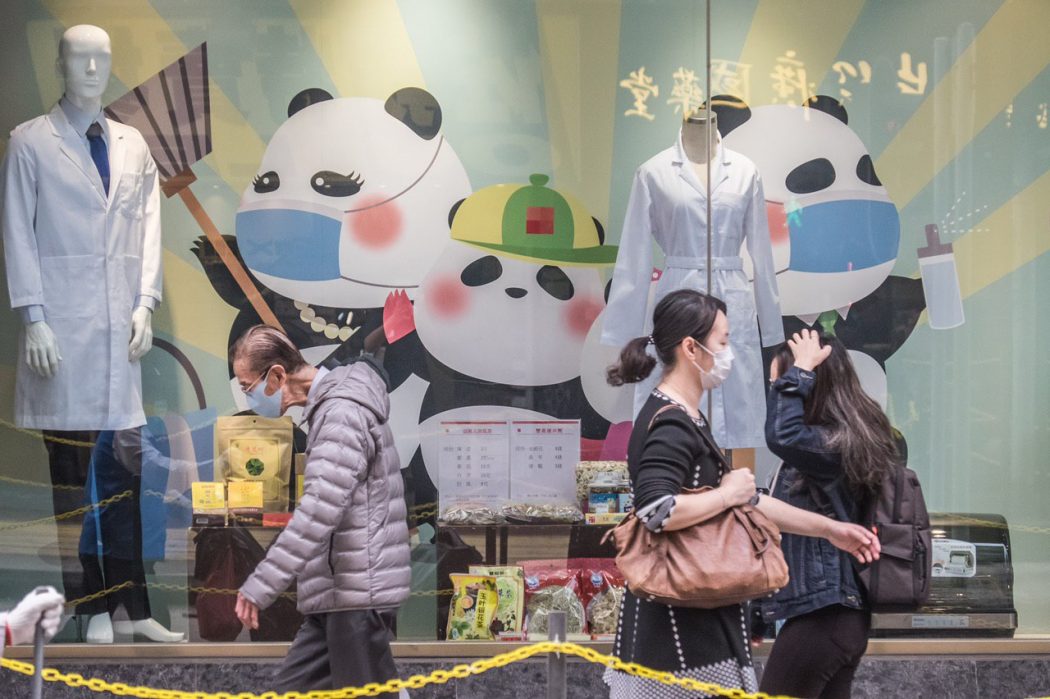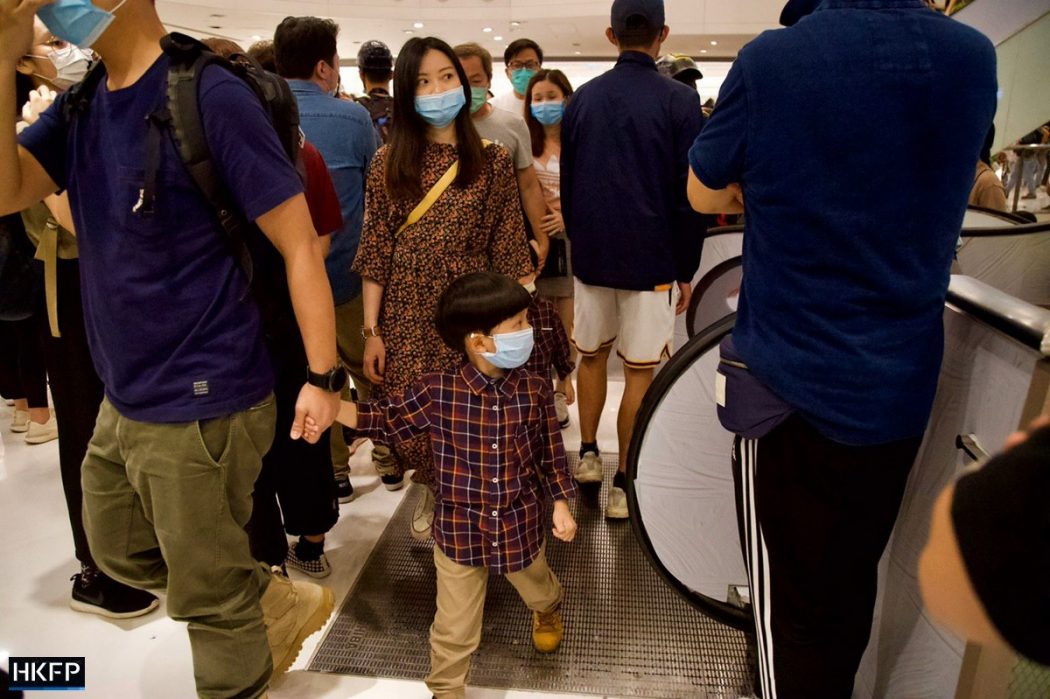By Duncan Ho, barrister-at-law and member of the Progressive Lawyers Group
The ban against gathering (the “Ban”) has been imposed by the Hong Kong government for over a month. Other than the prescribed exemptions, public gatherings of more than eight people (previously four before May 8) are prohibited.

The maximum penalty for contravention of the Ban is a fine of HK$25,000 and imprisonment of six months. You may also get a fixed penalty of HK$2,000 in lieu of prosecution.
Is the offence ‘prescribed by law’?
What is actually banned is far from clear. This is because there is no definition of the term “gathering” in the legislation, namely the Prevention and Control of Disease (Prohibition on Group Gathering) Regulation (Cap. 599G) (the “Regulation”).
As the term “gathering” is not defined, there is also no minimum allowable distance between persons within a group that would, under the Regulation, take them out of the definition of a gathering.
Hence, even where people are spaced 50 metres apart, they can still be prosecuted for contravention of the Ban so long as they have a “common purpose,” a concept which will be discussed below.
For example, I may still have committed the offence under the Ban if I hold a sit-down protest of nine persons (or five under the former limit), spaced 30 metres apart in the Hong Kong Stadium, or a “Sing-along,” or if people stand in front of their own buildings to chant protest slogans all over Hong Kong.

This is the most absurd result since the legislative intent of the Regulation is to prevent transmission of the disease. But this risk would be minimal if sufficient distancing is maintained in such a “gathering.”
The creation of an offence must be prescribed by law, i.e. it must be adequately accessible and formulated with sufficient precision to enable the citizen to regulate his conduct. With such uncertainty over the definition of the term “gathering,” it is doubtful whether the Ban would fulfil the “prescribed by law” requirement.
Prescribed exemptions unclear
The exempted gatherings provided for in the Regulation are unclear, too. For example, gatherings “at a place of work for the purposes of work” are exempted. But there is no definition of the term “place of work.” If my job requires me to work in groups in different public areas at different times, would such gatherings be exempted? The job of journalists is an obvious example.
And what if we, say, eight workers, hand out coupons on a footbridge and attract a large crowd queuing up for the coupons, would we be exempted because we gathered at a place of work for work purposes and the crowd be liable to a fine?

Gatherings held for “handling supplies or items that are conducive to the prevention and control of the specified disease” are also exempted. However, police have issued fixed penalty tickets to those handing out masks and hygienic products on the basis that there were also political slogans.
Must “handling supplies conducive to the prevention and control of the specified disease” be the sole purpose to benefit under the exemption?
When the situations are so unclear and people may wander into the minefields so easily, can the Ban still survive the “prescribed by law” requirement?
Concept of ‘common purpose’
The government, in its answers to press queries and on its official Facebook account Tamar Talk, has said that a gathering would usually be defined as a group of persons gathering for a “common purpose.”
This concept of “common purpose” may have been borrowed from the offences of unlawful assembly and riot under the Public Order Ordinance (Cap. 245). According to case authorities, one of the legal elements for unlawful assembly or riot requires the defendant and others in the group to have a “common purpose” in assembling together.

However, would this element of “common purpose” be required for finding guilt under the Ban?
The Court in interpreting the meaning of words in legislation would first look at the whole legislation and determine its legislative intent.
According to section 4(1) of the Regulation, the purpose of the Regulation is to prevent, protect against, delay or otherwise control the incidence of transmission of the Covid-19 disease.
Transmission of the disease amongst a group of gathered persons does not depend on whether they gathered with a “common purpose.”
On the other hand, the offences of unlawful assembly and riot seek to prevent people from gathering and acting in manners which are likely to commit breach of peace. The Court therefore imposed this requirement of “common purpose” to exclude innocent bystanders who may be present among such unlawful gatherings.
I do not see any reasonable connection between the concept of “common purpose” and the prevention of transmission of disease. It is doubtful if the Court will impose the requirement of “common purpose” for gatherings restricted under the Regulation.

Public statements made by the government are not part of the Regulation. The Court in interpreting the scope and meaning of gatherings is not bound by what the public statements say.
The Court is more than entitled to make its own interpretation of any provision in any legislation according to established legal principles without considering these public statements.
The Court would only look at materials presented and speeches made by Government officials during the legislative process at the Legislative Council (LegCo) if there is any ambiguity in the provision of the legislation. Yet, the public statements do not feature in the papers tabled at LegCo along with the Regulation.
It is true that a defendant may apply for a permanent stay of his criminal proceedings if he acted fully in accordance with the government’s public statements.
But is it fair to impose the burden on the defendant to apply for the permanent stay when the government could have spelt out such requirements in the Regulation?
Inroads into fundamental human rights
The Ban is a draconian measure since it restricts our fundamental human rights as protected by the Basic Law, such as our personal liberty, freedom of association, freedom of expression and religious freedom.

Although our fundamental rights may be restricted by legislation, it was held by the Court of Final Appeal that such restrictions may only be constitutional if they are rationally connected to a legitimate aim and no more than necessary to achieve the aim. A reasonable balance must also be struck between the societal benefits and the inroads made into the constitutionally protected rights of individuals.
Wearing face masks is now widely accepted by medical experts and international authorities (even by Carrie Lam, who once ordered her top officials to remove their masks) as an effective protective measure against transmission of the disease.
Another widely accepted measure is maintaining social distancing. This measure is also recognized by the Regulation. Section 10 provides police with the power to disperse two gatherings where the distance between both parties is under 1.5 metres, even if each of them has only eight people, or is an exempted gathering under the Regulation.
It is therefore most curious as to why the definition of a gathering does not include an exemption where the participants maintain a minimum allowable distance.

Why would a complete ban be necessary when an order to maintain social distancing and/or wear face masks would serve the same purpose?
These are all questions that the Court may need to answer when a defendant disputes his liability or if someone applies for a judicial review against the Ban. However, even if an individual succeeds in the judicial proceedings, is it fair and just that he has to undergo the stress and bear the risks of being criminally convicted to challenge an ill-drafted piece of legislation?
The opinions stated herein are the author’s personal views and are not to be taken as legal advice.
